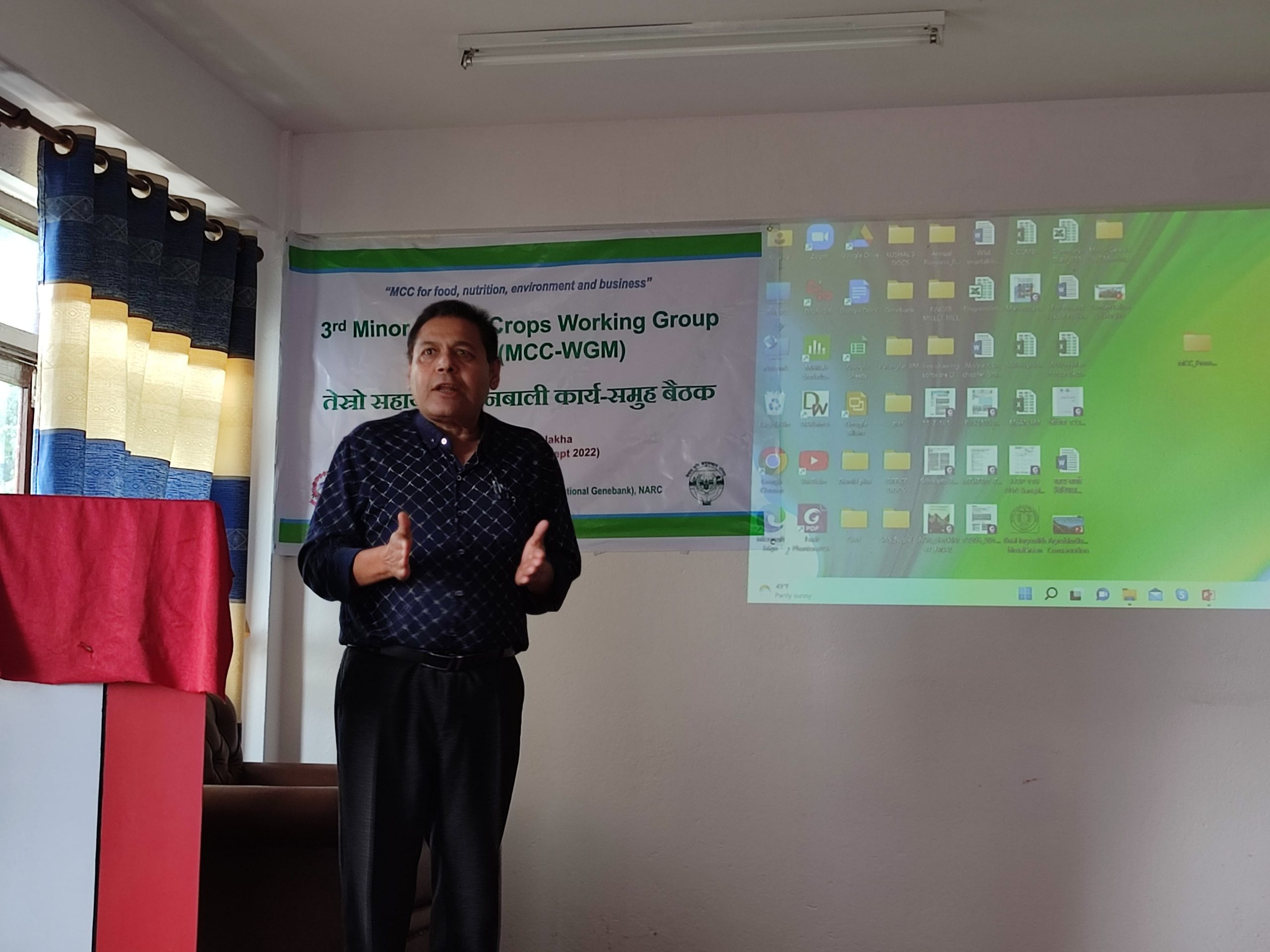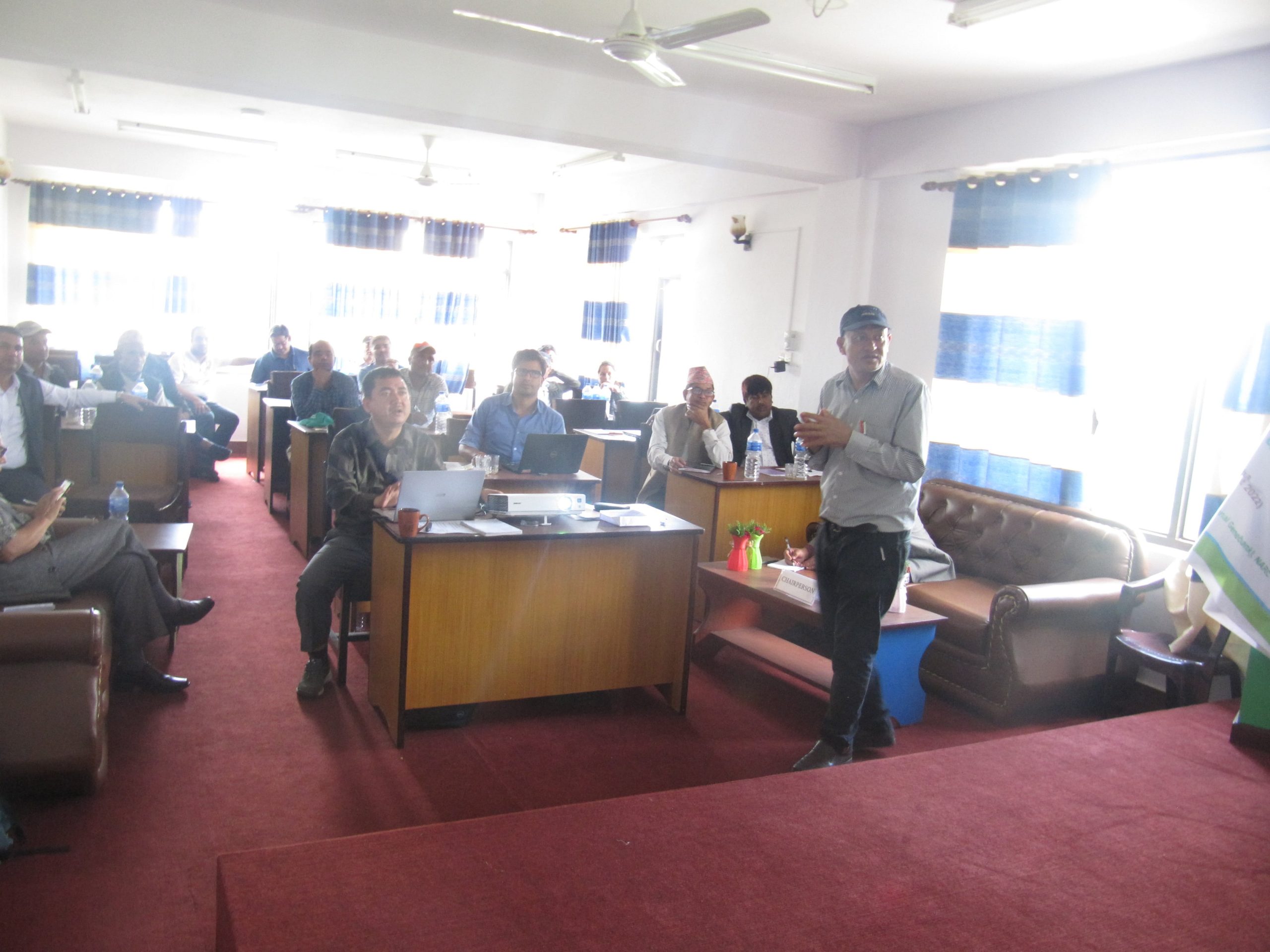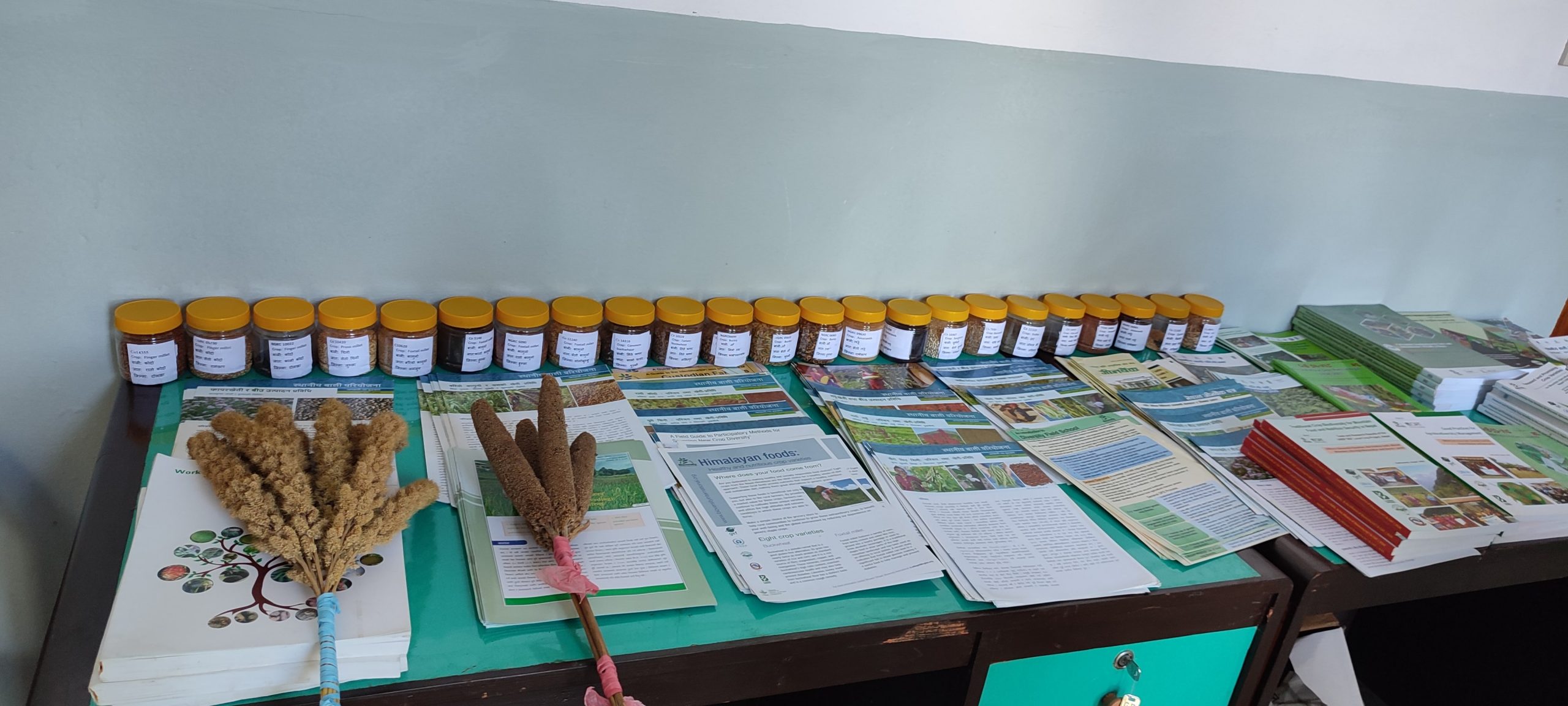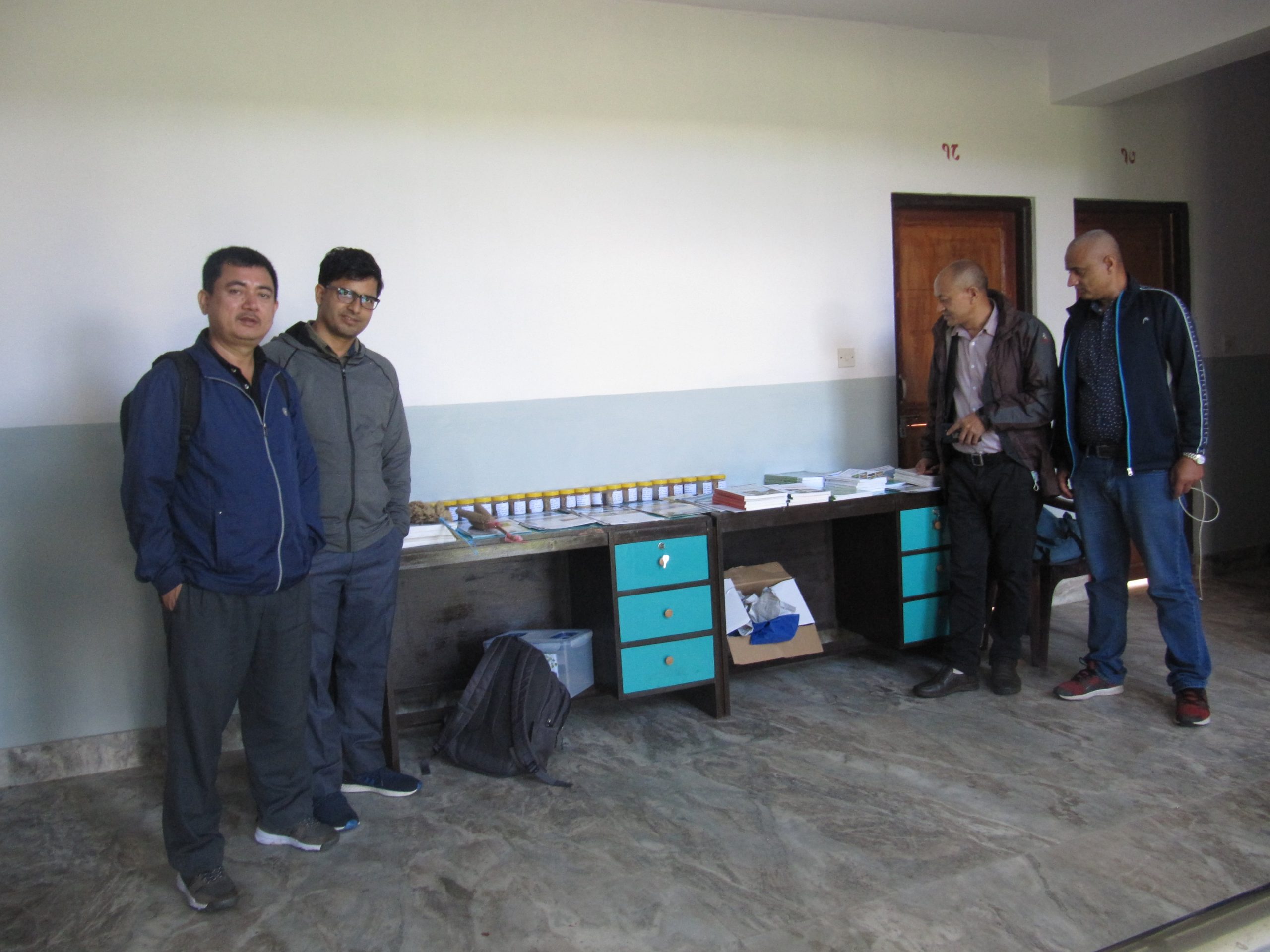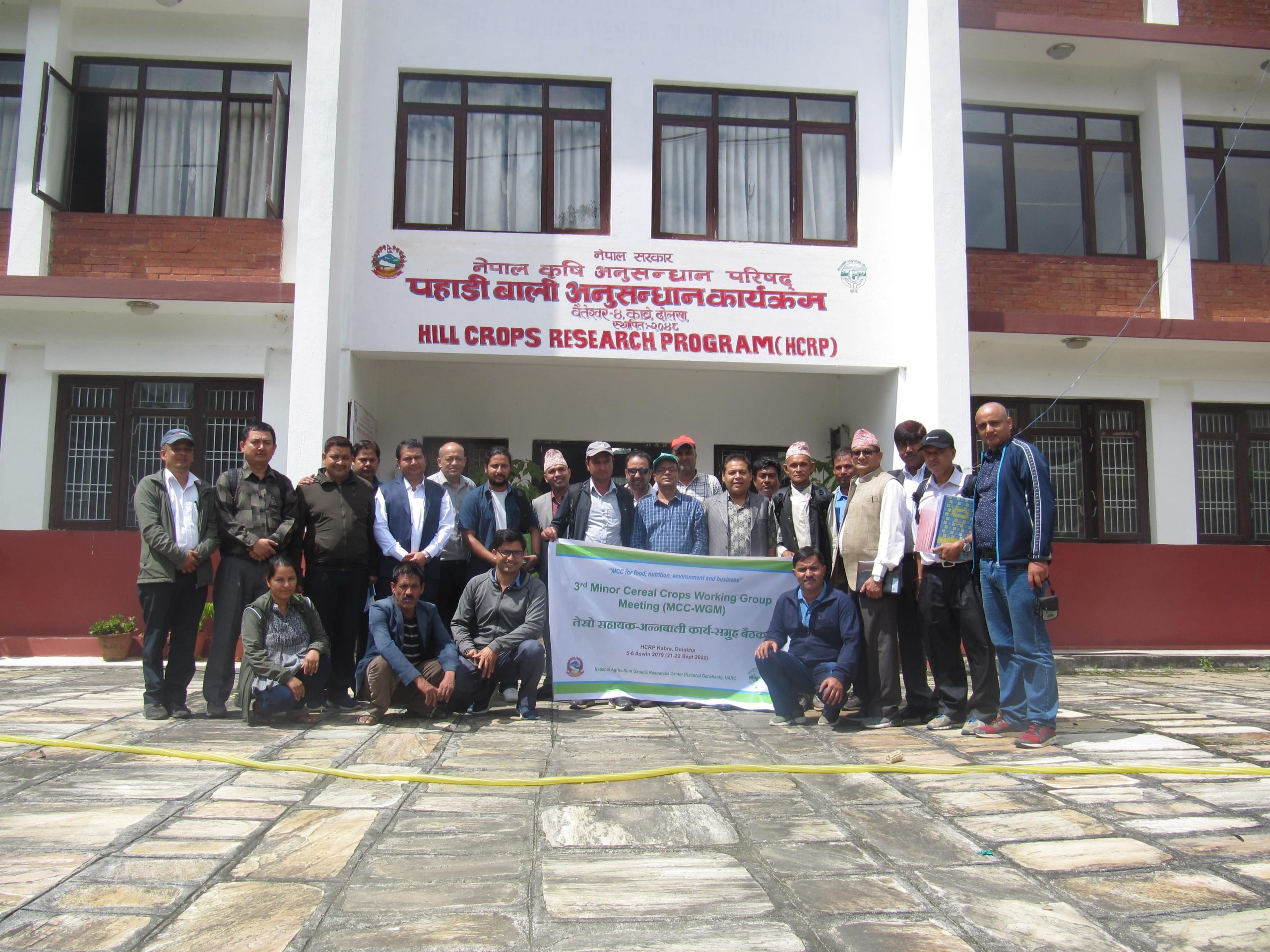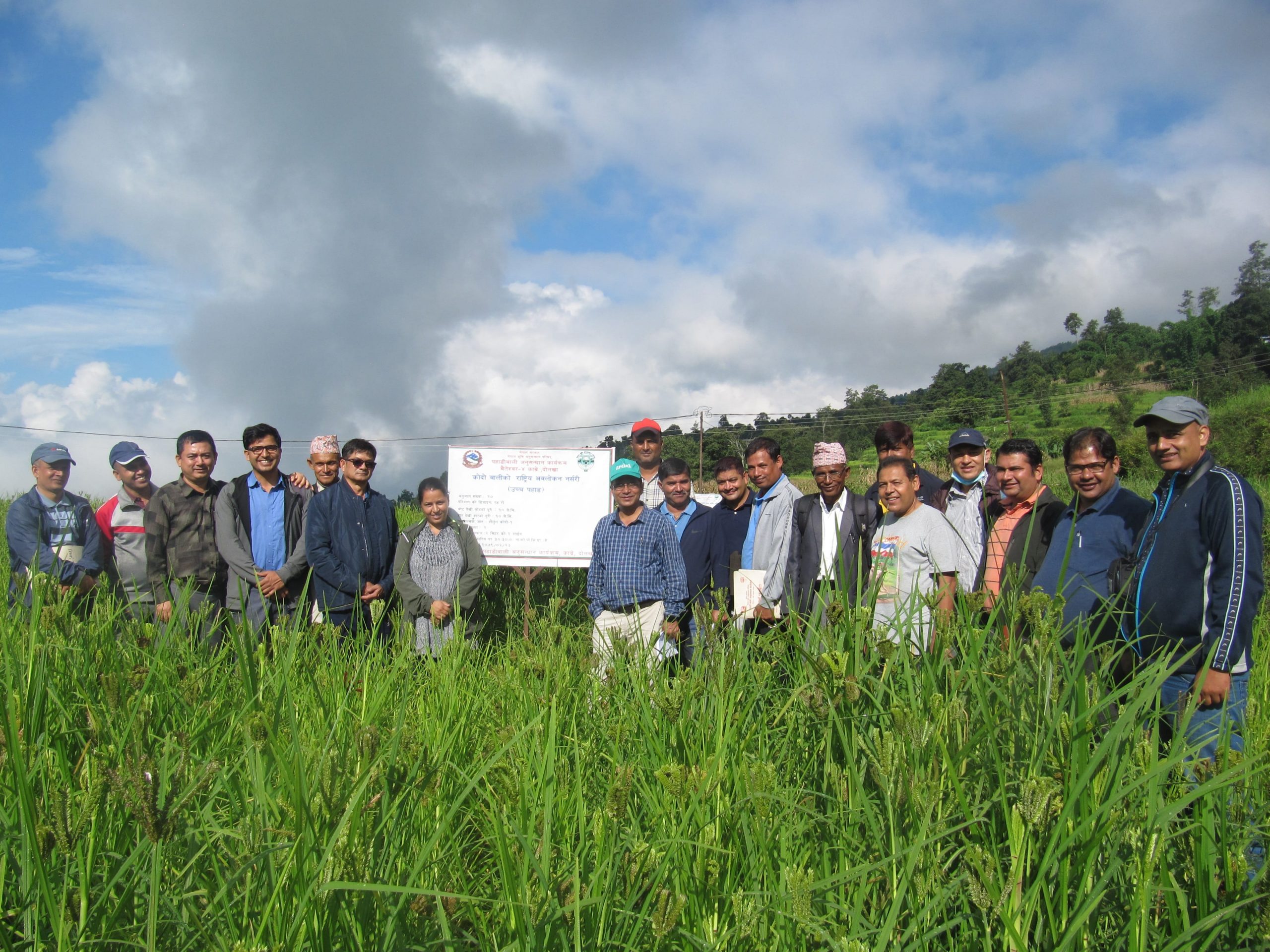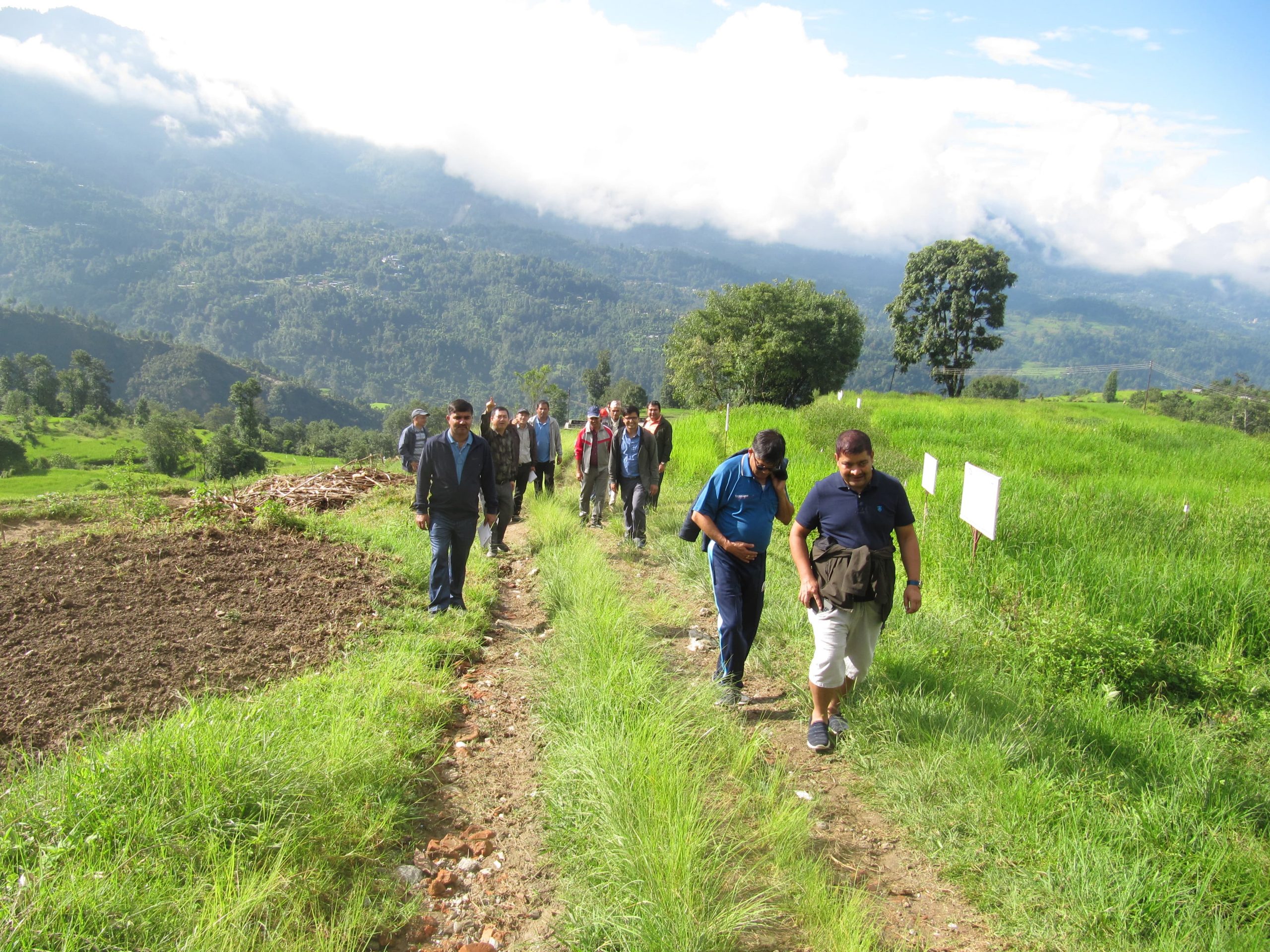National Agriculture Genetic Resources Center (Genebank), NARC, Khumaltar organized a two-days working group meeting on minor cereal crops during 5th– 6th Asoj, 2079 (21-22 September, 2022) at Hill Crops Research Program (HCRP), Kabre, Dolakha. The workshop was inaugurated by Chief Guest Dr. Keshab Babu Koirala, Director (Crop and Horticulture), NARC. Four different technical sessions were chaired by Dr. Keshab Babu Koirala, Dr. Bandhu Raj Baral (Co-ordinator, HCRP), Dr. Tika Bahadur Karki (Chief of National Agronomy Research Center (NAgRC) and Dr. Tek Prasad Gotame (Chief of Planning Division, NARC). Mr. Krishna Hari Ghimire, Senior Scientist from Genebank welcomed all the participants and highlighted the objectives of the workshop. According to him, scattered efforts are being made by different government and non-government organizations to promote minor crops such as finger millet, barley, naked barley, oat, rye, sorghum, buckwheat, amaranth, foxtail millet, proso millet, little millet, pearl millet, barn yard millet, etc. However, an integrated approach to enhance the conservation, breeding and management research and value chain development is an urgent need of the country. Mr. Ghimire further highlighted the brief history of previous meetings/workshops. The 1st and 2nd meetings were organized by HCRP Kabre, Dolakha in the name of Hill Crops Technical Working Group Meeting (HCTWG) in 2074/09/20 and 2075/09/20, respectively. On the same theme, this 3rd working group meeting (MCC-WGM) has been organized in order to review, discuss and document the research and development status, problems and challenges as well as to formulate a future roadmap or action plan for promoting minor cereals incorporating valuable inputs from wider stakeholders.
In Technical Session, a total of 14 offices shared their presentations including National Genebank, HCRP Kabre, LI-BIRD, DoAR Tarahara, DoAR Lumle, DoAR Doti, NPBGRC Khumaltar, NAgRC Khumaltar, NFRC Khumaltar, NPPRC Khumaltar, AKC Ramechhap, Vaityashwor Rural Municipality and farmers from Gaurishankar Rural Municipality and Melung Rural Municipality.
Technical session was followed by group discussion. MCC-WGM made the following agreements
- Finger millet, barley and buckwheat should be considered as major crop
- Working group meetings should be based on commodity-wise, (eg. wheat, rice etc). Discipline-wise (food science, agro-biodiversity, plant breeding, etc) can be done after assessing the success rate of commodity-wise WGM.
- Mandate for some MCC should be changed. DoAR Doti should be assigned to work on Amaranth and ARS Vijaynagar should be assigned to work on proso millet, foxtail millet and barley. HCRP Kabre should focus on finger millet and buckwheat. The meeting also agreed to change the name of the Hill Crops Research Program (HCRP) to National Finger Millet and Buckwheat Research Program (NFMBRP).
- The meeting agreed to assign following offices as source center for the foundation seed production of following crops,
- Finger millet: HCRP Kabre, ARS Pakhribas and DoAR Doti (Early variety)
- Common buckwheat: HCRP Kabre, ARS Pakhribas and NMRP Rampur
- Tartary buckwheat: HCRP Kabre and ARS Jumla
- Barley and naked barley: HCRP Kabre and ARS Jumla; Malt Barley: NWRP Bhairahawa.
Besides, MCC-WGM gave following recommendations:
- Nutrition and awareness-raising program needed for increasing uses of Tartary buckwheat
- Pollination in common buckwheat should be enhanced by collaborative research with bee farmers
- National Pride Program on MCC (MCC for food, nutrition, environment and business)
- Import of international germplasm for enhanced breeding
- Capacity-building training for AKC, Municipalities and Researchers
- Sufficient budget for breeding, promotion and utilization of MCC
- Multidisciplinary monitoring and travelling seminar for MCC
With the active participation of all members, the meeting outlined 5 years roadmap for MCC. The team agreed to work on,
- Collection, conservation and utilization of landraces including landraces registration in National Seed Board, and varietal development and dissemination.
- Diversity creation and diversity mapping (genetic, phenotypic and location)
- Study on geographical indication and marketing according to GI tag.
- Nutrition profiling (eg. Glycemic index for MCC), value chain development including product diversification and market penetration
- Integrated crop management
- Policy intervention including academic course curriculum prioritizing MCC in all levels of study, MCC integration in day-food of school children.
- Publication and dissemination including an awareness campaign particularly in cities, CTEVT schools, universities etc.
- Development of molecular tools suitable for MCC, accredited laboratory in research c working for MCC
- Scaling up results of the above activities.
There were a total of 42 participants. Among them, 27 were working group members and rest are support team members. To increase awareness of local crops among participants, Raithaane Parikaar Saanj was organized as a side event and local foods were served.
The meeting was concluded by making a national committee with the responsibility of developing action tracks on the occasion of International Millets Year 2023 advocating and bringing MCC to the next level. The committee is chaired by Dr. Bal Krishna Joshi, Genebank where Mr. Roman Karki, NFRC was appointed as Secretary. Other member includes Dr. Bandu Raj Baral-HCRP, Dr. Ram Krishna Shrestha-CCDABC, Dr. Santosh Shrestha-LI-BIRD, Mr. Krishna Hari Ghimire-Genebank and Mr. Ramesh Acharya-DoAR Lumle.
